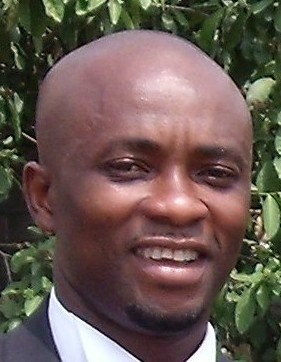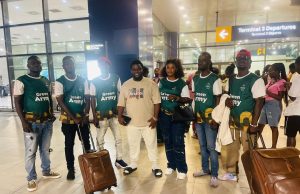…Again and Again
“It is childish to remain in a hole when you can take yourself out.” – African Proverb
It is no secret that the Ghanaian is not patriotic. He or she cares very little about his or her nation. Genuinely, he or she has a cynical attitude toward life and feels sceptical about the nation’s prospects for development. The cynicism is so deep that a majority of the ‘educated elite’ have even cultivated a sense of hopelessness and resignation – which is fundamentally counterproductive to the efforts needed to promote the creativity and positivity that can help uplift the nation. Sadly, and too often, the effort to analyse the causes of our woes, are centred on the popular pushed-down-the-throat variety of factors: including the historical colonialism, the current neo-colonialism, the ongoing political trickery and the always-on economic challenges as the causes of our woes.
While these factors are contributory, the underlying psychological state is often overlooked. But when we consider how Ghanaians care less about how they treat themselves and other Africans, the standards they accept as ‘cool’, the scorn with which they treat everything Ghanaian, and the way they treat foreigners who are non-Africans, one does not need to be told about how lowly the Ghanaian deems him or herself. It is this lack of self-worth and self-respect that makes them negative about life and decreases their belief about positive change happening to them.
As with all challenges, we need to get to the root source in order to design and implement a solution that will eradicate the causes. And so we go right back to societal upbringing. Most Ghanaians have grown up in a society where leaders (adults and office-holders) from all spectra of life have used and abused them with their incompetence, neglect, lies and empty promises. In the process, the Ghanaian’s mind has been filled with vile and disgusting views about life – from giving hope a bad name to rubbishing intelligence and innovativeness. Our ‘ways-and-means’ culture likely stems from the ‘distrust of systems and fear of providing a wrong answer either in school or at home’ we cultivated from surviving the ‘use and abuse’ strategy of our societal leaders.
What many of those leaders did not know was that aside from the immediate disappointment and damage, their ‘use and abuse them’ strategy has life-long and even intergenerational impacts. When any person is used and abused in their childhood, there are later physical, psychological and behavioural consequences…as well as costs to society as a whole. These effects may be independent of each other but they also may be interrelated. For example, when a person has been told to shut up in his or her childhood, it may stunt the development of that person’s confidence and lead to a high-risk behaviour of being intolerant of opinions from others as an adult.
In other words, when a person is ‘used and abused’, the probability that he or she will unconsciously learn the strategy and employ it without realising when the opportunity arises is quite high. It is probably not surprising that the Ghanaian hopes and expects life to get better but does not realise that his or her actions and inactions act as a barrier to this prospect. We have been playing victim, but we have not realised that we became the victimisers. We surround ourselves with sycophants and wonder why we cannot find individuals with integrity. We do not tolerate differing opinions and then lament a lack of creativity and innovation among the youth. The saddest part is when we complain about incompetence yet would not make the extra effort to search for talent ourselves.
As a nation, we need to start dialoguing on how we can improve our self-worth and self-respect. We need to care about how we treat ourselves and how others treat us. We need to understand that when our self-esteem is low, we make the worst decisions; and our ability to overcome challenges dwindles even if we acquire all the education there is in the world. Have we not observed that almost all our initiatives are merely recycled ideas that did not work in the past? We are afraid to try new things, to do things differently – and we are even scared of those who think and act differently. It all boils down to the confidence we have in ourselves – or lack thereof.
__________________________________________________________________
Kodwo Brumpon is a partner at Brumpon & Kobla Ltd. – a forward-thinking Pan African management consultancy and social impact firm driven by data analytics, and with a focus on understanding the extraordinary potential and needs of organisations and businesses to help them cultivate synergy that catapults them into their strategic growth and certifies their sustainability.
Comments, suggestions and requests for talks and training should be sent to him at [email protected] kobla.com


















